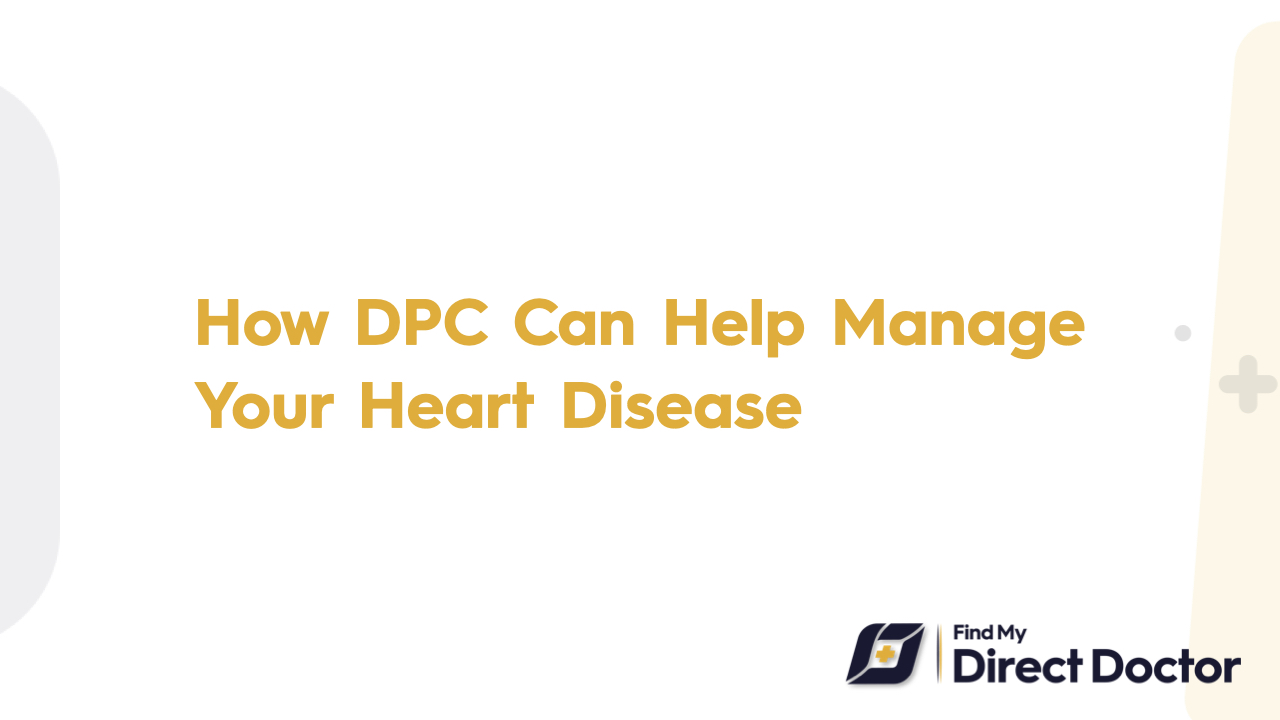



Heart disease encompasses a range of disorders that impact the heart, such as arrhythmias, heart failure, and coronary artery disease. It is among the world's major causes of death. The ailment frequently results from weakening cardiac muscles or fatty deposits accumulating in the arteries.

Chest pain, dyspnea, exhaustion, lightheadedness, and irregular heartbeats are typical signs of heart disease. Effective management of heart disease depends on early detection since in certain situations, the ailment may not exhibit overt symptoms until it has advanced.
A more individualized method of treating cardiac disease is provided by Direct Primary Care (DPC). DPC makes it possible to continuously monitor heart health by giving patients regular access to their primary care physician. When required, your doctor can make early modifications to your treatment plan based on close monitoring of your blood pressure, cholesterol, and other risk factors.
Patients benefit from lengthy, in-depth sessions with DPC. In a manner that traditional healthcare systems might not be able to, this allows you to have a thorough conversation with your clinician about any symptoms, worries, and lifestyle modifications.
DPC offers a number of benefits to people with heart disease. The ability to obtain prompt and preventive care is the most noteworthy advantage. You are more likely to identify problems early before they worsen if you have a direct line of communication with your physician.
The holistic approach to care is another advantage of DPC. More time is spent getting to know patients by DPC physicians, which results in more individualized treatment regimens. DPC also emphasizes prevention, which over time makes it simpler to control and lower risk factors for heart disease.
One of DPC's main advantages is its ability to provide individualized treatment for heart disease. Rather than implementing a universally applicable treatment plan, your healthcare professional customizes a plan to meet your unique health requirements. This includes keeping an eye on your medication, food, exercise, and other heart-healthy variables.
Regular visits allow your doctor to make adjustments in response to changes in your condition. DPC makes sure that the care you receive is tailored to your particular needs, whether that means changing your prescription or suggesting new lifestyle modifications, which will improve your long-term results.
Previous Post